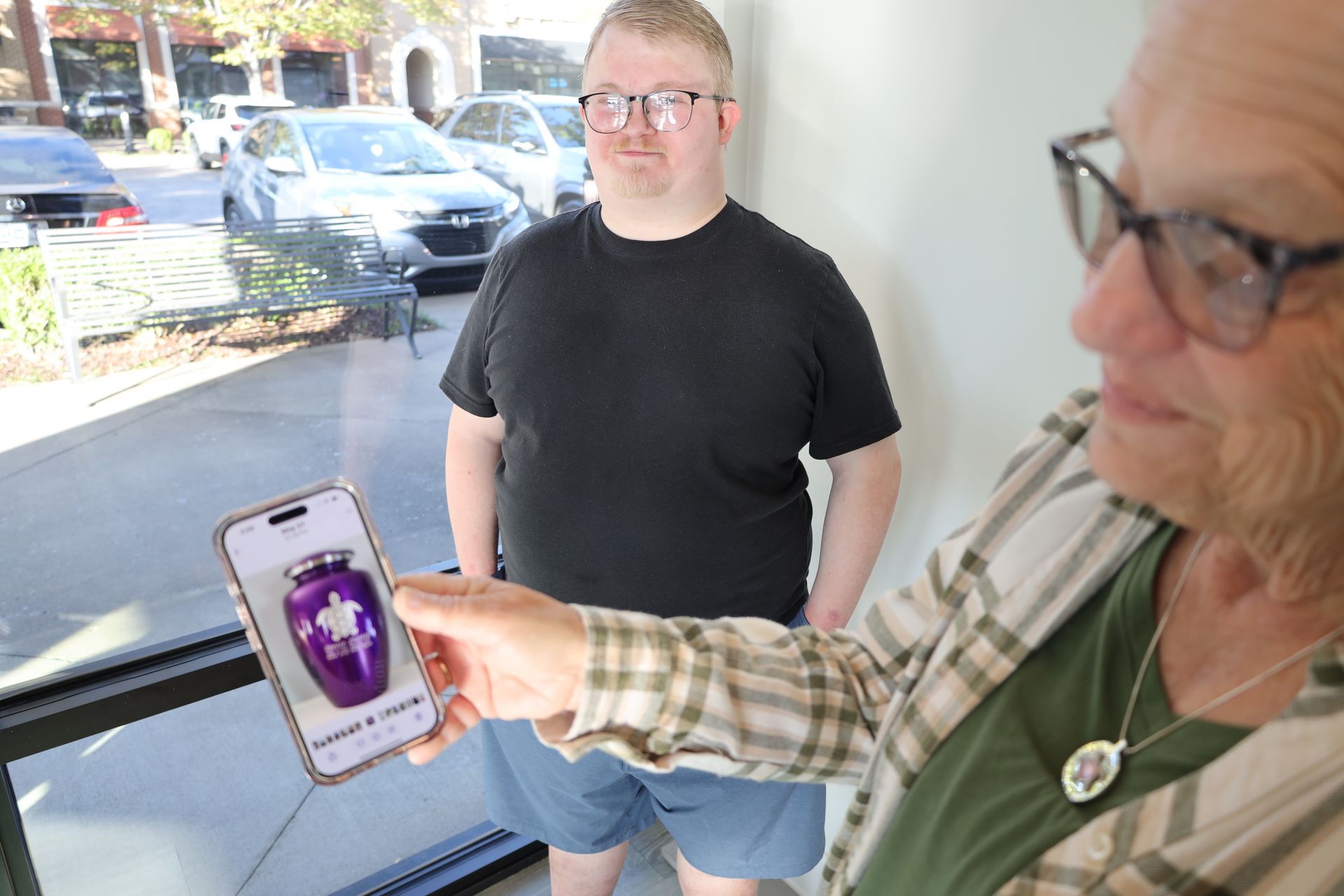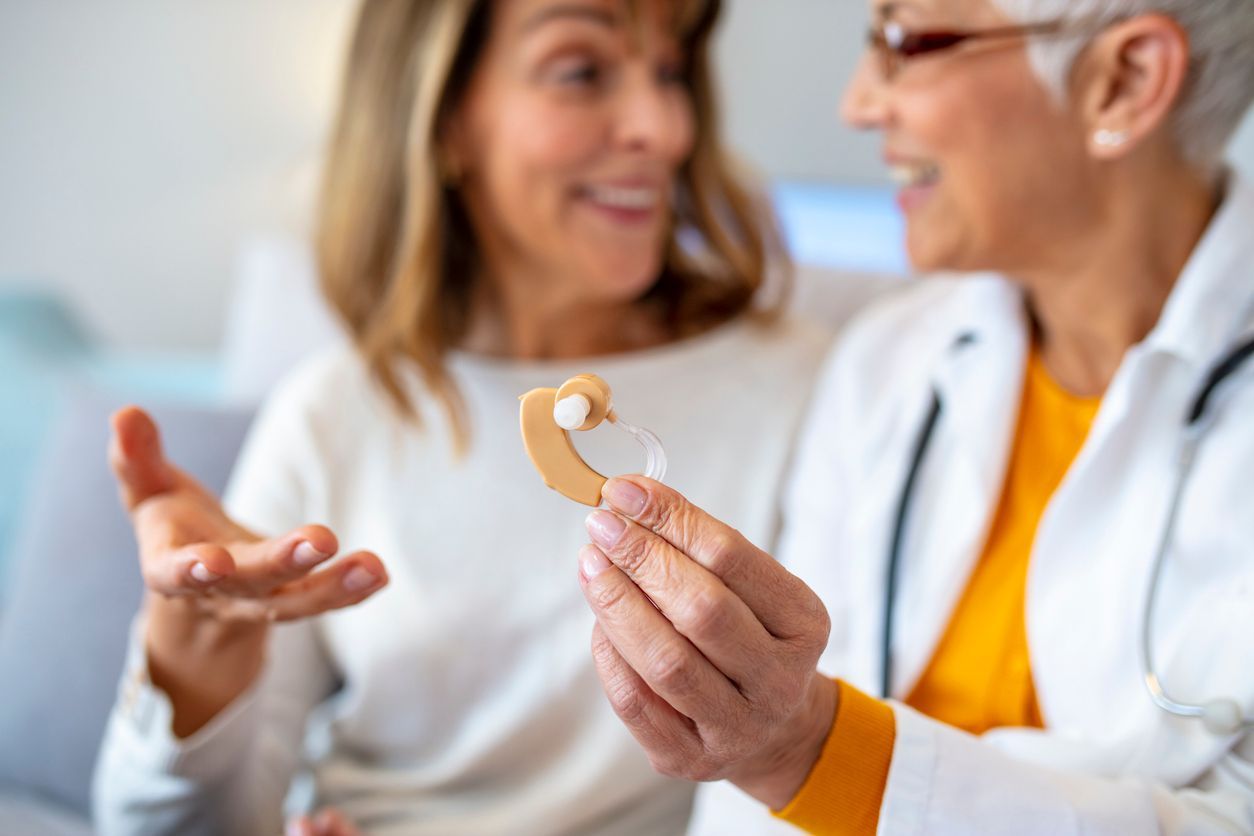Hearing Aids: An investment in your quality of life

Based on the questions we hear in our clinic, many of our patients know hearing aids are a financial investment before they come to us. The questions patients ask us about hearing aid cost tend to be a variation of one of these below:
- How much do hearing aids cost?
- Why do hearing aids cost so much?
- Will insurance cover the cost?
We’re going to answer those questions, but I want to share a personal concern first. Since my father struggled with hearing loss, I’m troubled by the thought of someone not seeking help for hearing loss due to the cost of hearing aids. These devices can significantly improve your quality of life.
If you haven’t received treatment for your hearing loss, I encourage you to make an appointment with us. One of our audiologists will evaluate your hearing. If the diagnostic reveals that you could benefit from hearing aids, we will work with you to find a solution to fit your budget.
How Much Do Hearing Aids Cost?
The price of one hearing aid can vary from just under $1,000 for very basic models up to around $6,000 for devices with many special features and more advanced technology. A study by the President’s Council of Advisors on Science and Technology found the average cost of one hearing aid is $2,300. The cost doubles for patients who need devices for both ears.
What Makes Hearing Aids Cost So Much
Hearing aid manufacturers have invested millions of dollars into research and development for today’s state-of-the-art technology. Understandably, this cost is passed on to the consumers who are benefiting from the technology.
The good news is the hard work of these manufacturers has resulted in numerous technological advances. Although analog hearing aids are still around, the vast majority of today’s hearing aids are digital. Many modern hearing aids have improvements and features that make life much easier. Here are examples of what’s available.
Smaller, Less Visible Devices
Many of our patients want discreet devices. Technological improvements have made large, clunky hearing aids a thing of the past. For patients concerned with their appearance, in-the-canal style hearing aids are nearly invisible as these tiny devices are designed to fit in your ear canal. Even the more familiar behind-the-ear styles have become smaller. A clear tube provides a discreet connection between the behind-the-ear device and an earmold or smaller earpiece.
Noise Reduction
Frequently, older hearing aids made background noise louder than users desired. Sometimes, background noise made it difficult for users to hear the sounds they wanted to hear. Noise reduction technology lowers the volume of background noise. A recent study found users reported noise reduction improved sound quality and speech reception.
Connectivity
Some hearing aids have Bluetooth technology. These devices can connect wirelessly to other electronic devices like your tablet, laptop, smartphone, or TV. This connectivity gives hearing aids the ability to perform double duty as personalized listening devices.
Connectivity is one of users’ favorite advances in hearing aid technology. These hearing aids make it easier for patients to keep in touch with loved ones. Some older hearing aids were hard to use when you were on the phone. Connectivity eliminates those challenges.
App Control
Some of our patients are self-conscious about making adjustments to their hearing aids in public. Major hearing aid manufacturers have created apps that allow you to control your hearing aids with your smartphone. Although app features vary by manufacturer, these apps let you adjust things like volume, directionality, and noise reduction. Certain apps use GPS technology to help you find a missing hearing aid.
Do Audiologists Steer Patients to Pricier Hearing Aids?
This isn’t one of the questions that most patients ask us. However, we know you may be wondering about this.
At Johnson Audiology, we’re completely independent of hearing aid manufacturers as we work all six of the most reputable manufacturers rather than tying ourselves, and our patients, to one brand. Thus, our recommendations are based on the needs of our patients.
At Johnson Audiology, we realize each person’s experience of hearing loss is unique. As audiologists, that’s why we work hard to create a custom solution to address each patient’s situation. We provide our patients with a comprehensive hearing evaluation. If the results of the diagnostic reveal that hearing aids are necessary, our recommendation for your devices is based on your test results, lifestyle, and budget.
Will Insurance Cover the Cost?
It depends. Some insurance policies cover hearing aid technology. Some may cover your hearing assessment without providing coverage for hearing aids.Some policies may provide coverage for both.
We don’t want the expense of hearing aids to keep you from addressing your hearing loss. At Johnson Audiology, we work with you to find the right hearing aids for your hearing loss, lifestyle, and budget. Since we have partnerships with all major health insurance companies and a wide network of hearing health care programs, our on-staff insurance specialists can find out if your health benefits include coverage for hearing health care and technology.
Contact us to schedule a hearing evaluation. We’ll be prepared to explain your options when you come in for your appointment.
Recent Posts



